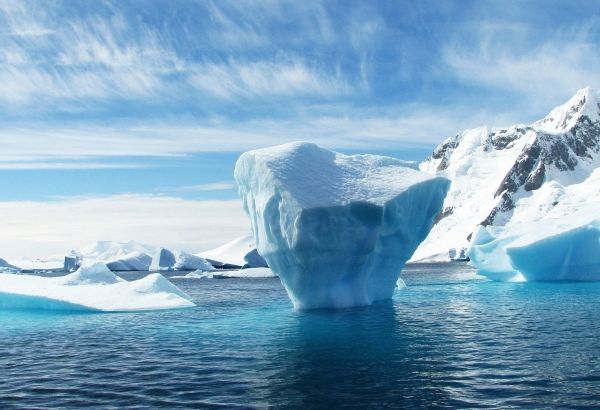The 1.5-million-ton behemoth was on the loose.
The massive blue-tinged iceberg was headed straight for an offshore drilling platform in the Kara Sea off Western Siberia. Two smoke-billowing Russian tugs, the Almaz and Kigoriak, arrived on the scene bearing an eight-inch-thick, quarter-mile-long tow rope. Almaz took one end, Kigoriak the other, and moving in painstaking synchrony, the tugs formed a lasso around the floe. They dragged it slightly off course, where the Arctic currents took over.
The tugs’ efforts prevented a disastrous and costly collision. But nudging an iceberg is one thing; moving one thousands of miles is another.
It may sound like science fiction, but it’s something WHOI geologist Alan Condron has been thinking about a lot lately. He’s been studying the possibility of towing an iceberg from Antarctica to Cape Town, South Africa, which recently experienced a water crisis.
“Large icebergs could be used to alleviate drought and supply a city with water,” Condron says. “One of the nice things is you wouldn’t have to treat the water with chemicals. It’s pure and fresh.”
Read more at Woods Hole Oceanographic Institution


